-
Car Reviews
- Car News
-
Car Comparisons
Latest comparisons
- Chasing Deals
As Mercedes’ game-changing GLC EV looms large on the horizon, could the subtly impressive and attractively priced plug-in hybrid be the one most Aussies should be buying?
How times have changed since the second-generation ‘X254’ GLC arrived in Australia, in mid-2023, with a slimmed-down line-up and the choice of just a single grade.
Turbulent times in an increasingly competitive market have seen Mercedes broaden the GLC’s lineup with the 200 4Matic now sitting under the existing 300 4Matic, with both utilising a 2.0-litre turbocharged four-cylinder engine working in conjunction with a 48-volt mild-hybrid system, but no ‘true’ hybrid has been available until now.
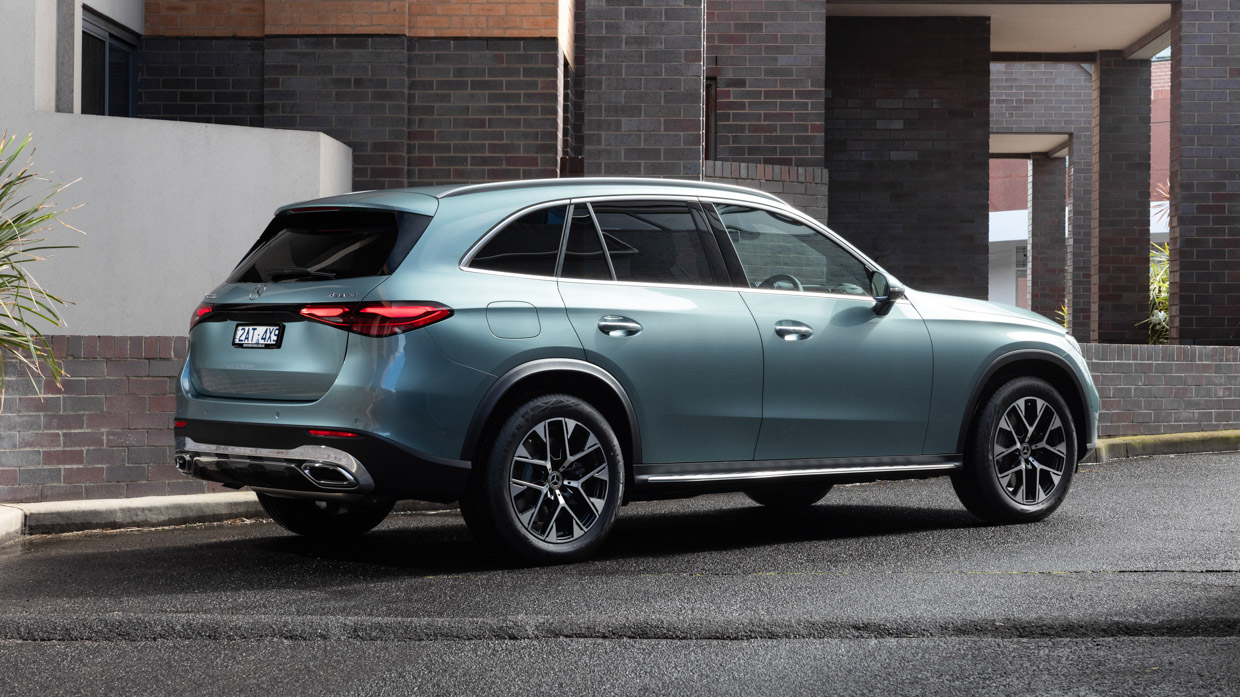
The GLC 350e presents as a hybrid which is both impressive on paper and approachable to luxury buyers, with strong value, an electric range of 107km and the same familiar petrol engine as the rest of the range.
Lengthy electric driving range for commuting during the week, and a familiar petrol engine for long trips on the weekend. It seems like an ideal package for buyers in 2025, especially in Australia, when many are starting to have second thoughts about all-electric vehicles.
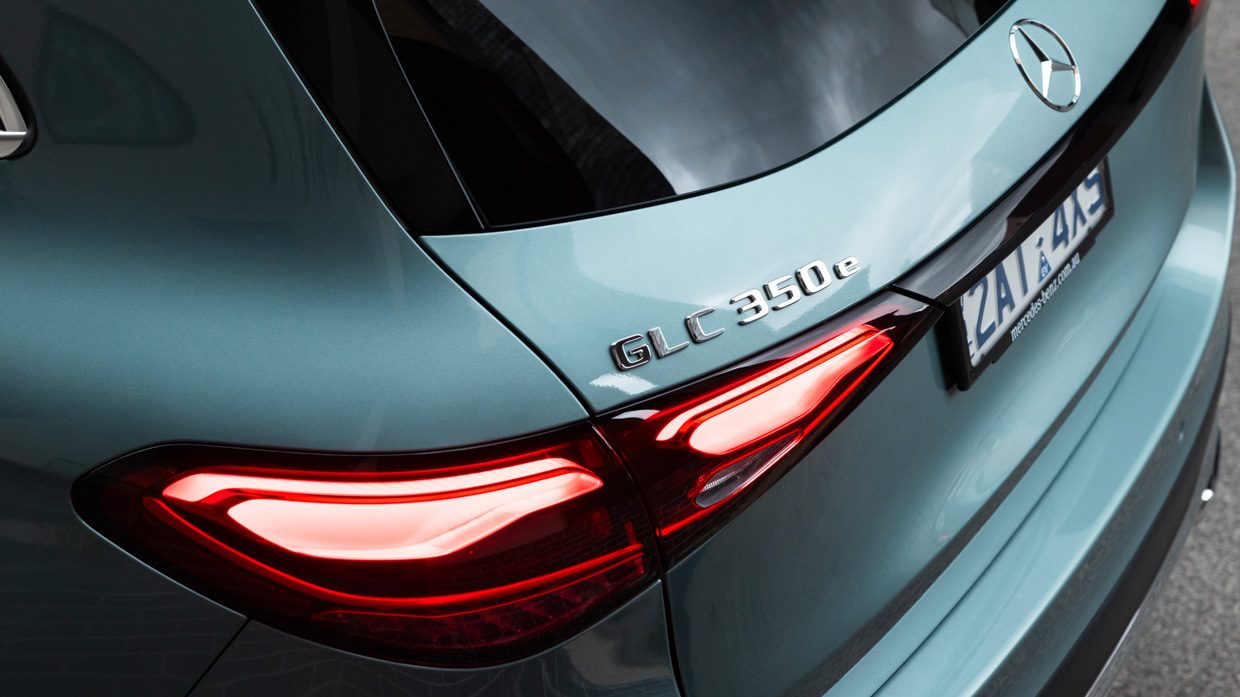
So with Australia’s charging network still far behind European nations, should buyers snap up the plug-in hybrid version of the GLC rather than wait for the much-hyped, 700km-capable and likely very expensive fully-electric version?
With a price of $99,990 before on-road costs, the GLC 350e sits between the 200 ($89,000) and the 300 ($105,100) in terms of both price and equipment.
That puts it just below the price of a BMW X3 30e ($104,800), but it’s still undercut by the recently updated Volvo XC60 Plus T8 PHEV ($92,990). Audi is slated to bring in plug-in versions of the Q5 next year, with prices expected to land somewhere in the middle.
All locally sold GLCs are fitted with a 4Matic all-wheel drive system, with the plug-in restricted to the wagon body, at least for now.
Standard features include the following:
The 350e comes trimmed in Avantgarde styling, which is a handsome, understated package but many will migrate to the optional AMG Line styling package for an extra $6000.
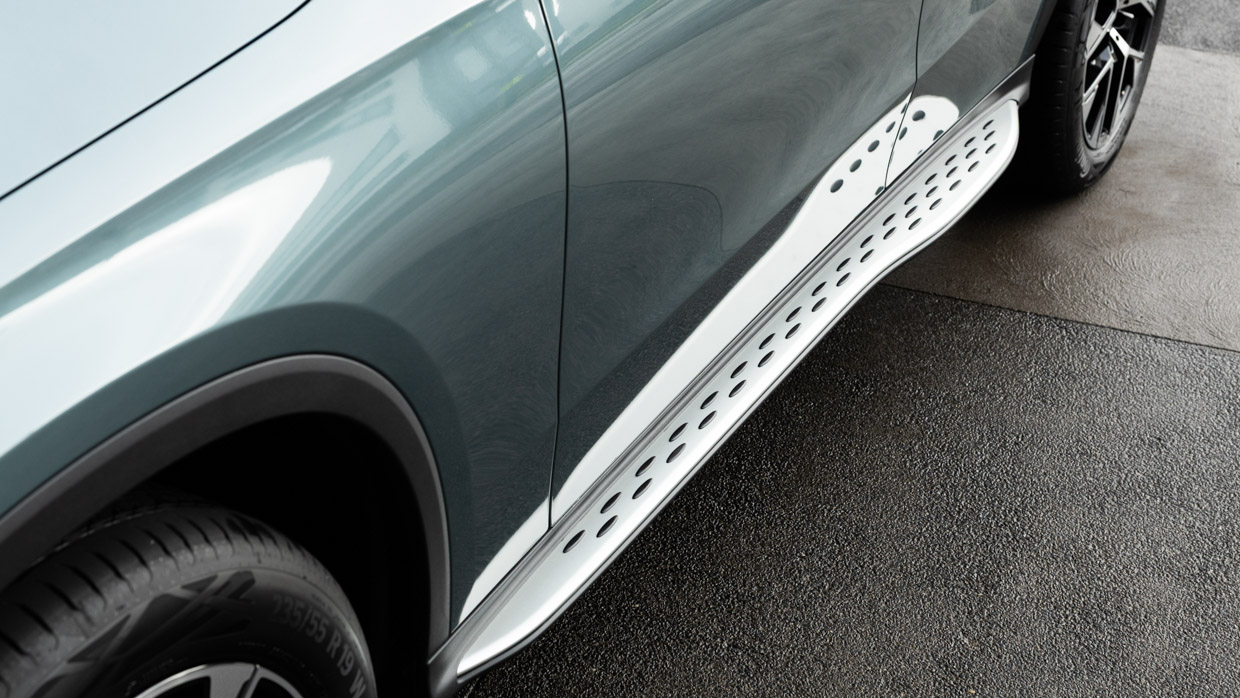
The more aggressive body kit is complemented by 20-inch alloy wheels, AMG Line pedals, floor mats, sports seats and a sports steering wheel trimmed in Nappa leather. The $1300 Night Package is also available, adding contrasting black accents to the wheels, mirror caps and roof bars.
Finally, the $7600 Plus Package adds the following features:
Tempting as they may be, the optional extras add up fast, and it’s notable that the plug-in C-Class sedan features many of the most enticing elements of these packages, such as the AMG Line exterior and interior styling, along with the Burmester stereo as standard.
The current generation GLC marked a move towards a more dynamic experience than its predecessor but, at least in the petrol-powered 200 and 300 guise, the new advantages appeared to come at the expense of ride comfort.
Self-levelling air suspension has been added to the rear axle of the plug-in hybrid 350e, which goes a long way to smooth out the road’s imperfections and no doubt better support that extra heft of the 25.28 kWh battery pack sitting over the wheels.
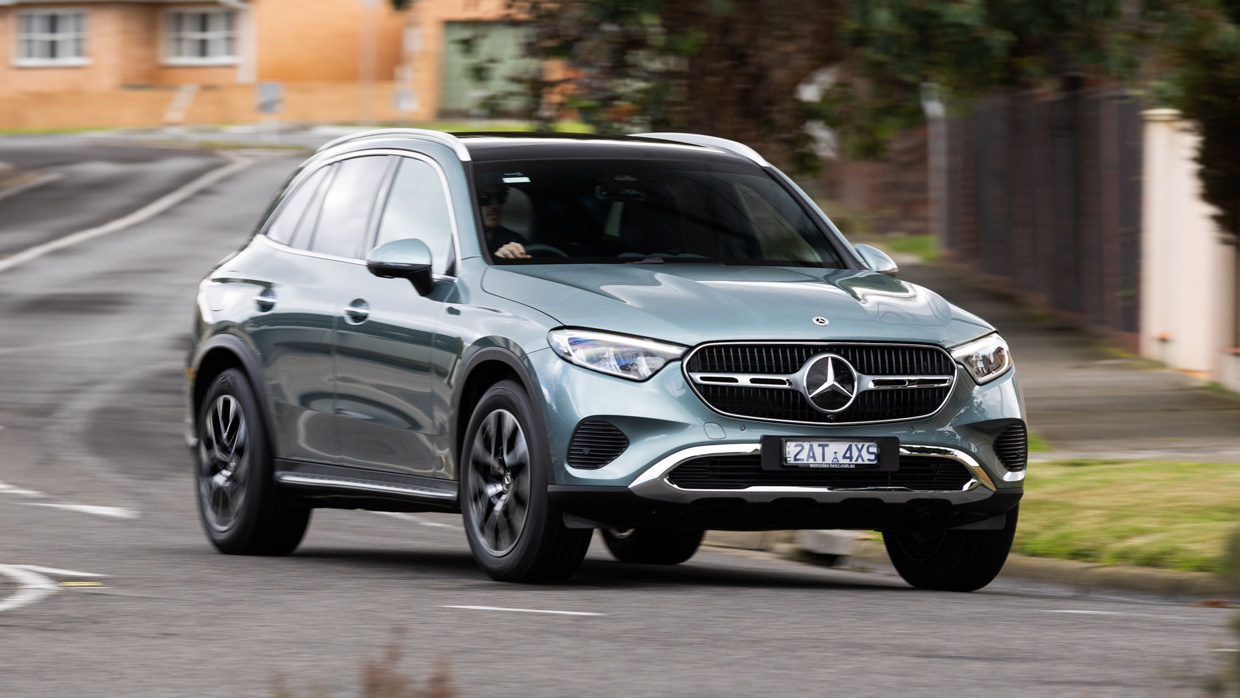
We didn’t have a chance to ride in the back, but from the driver’s seat, the sharp turn in from the coil-spring front suspension on frequency selective dampers combined with the controlled waft of the rear strikes a pleasing balance of agility, stability and comfort.
The GLC PHEV puts its best foot forward rolling on 19-inch wheels in standard form, but stepping up to the 20s fitted with the AMG Line package doesn’t appear to offer any major drawbacks to comfort, and turn-in is ever so slightly sharper.
Throw the 350e into some big bumps at speeds and the front dampers will start to struggle but it’s worth remembering that performance isn’t necessarily the goal here. That said, with a combined output of 230kW and 550Nm, this is a very quick SUV indeed.
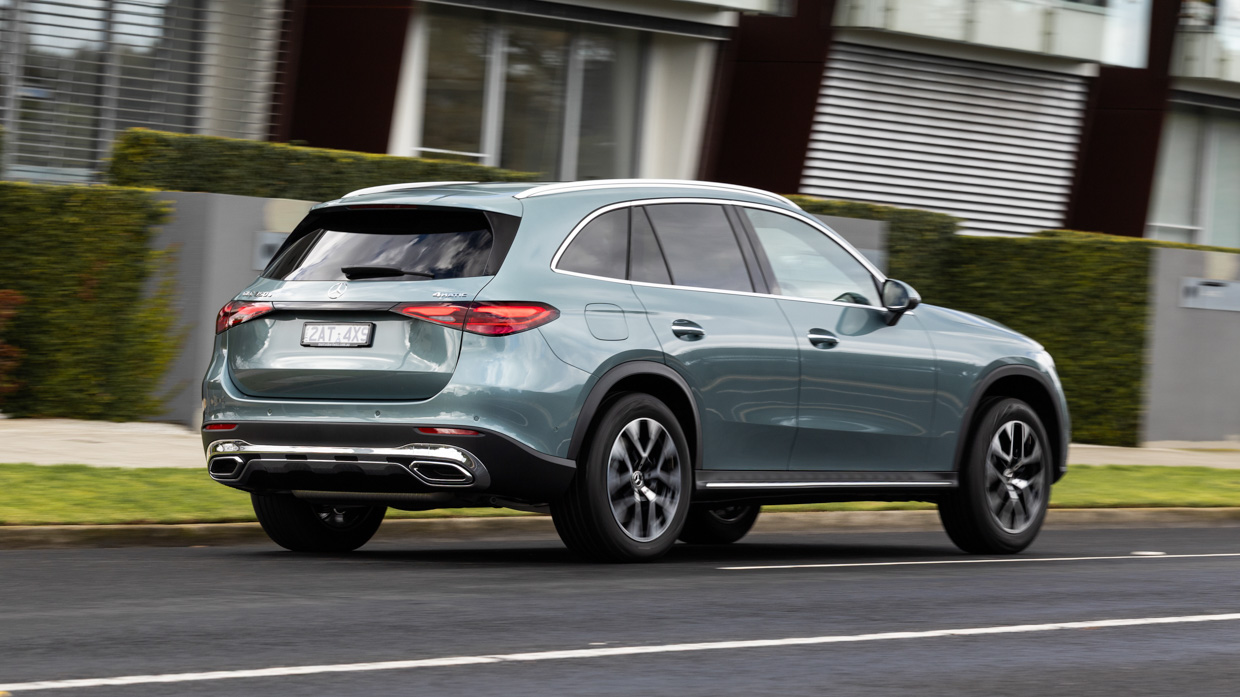
The official 0-100km/h sprint time of 6.7 seconds is technically slower than the 6.2sec time quoted for the 190kW/400Nm GLC 300, but once on the move in the Sport hybrid mode, the 350e feels considerably quicker.
We do wish there was a bit less road noise coming in from the cabin, which is likely exacerbated by the run-flat tyres fitted to this model.
There was enough silence, however, to pick up a consistent creaking from the passenger-side rear of the main GLC 350e we drove, an observation replicated in a second unit later in the day.
It’s a concerning trend we’ve observed in multiple Mercedes-Benz cars in recent years, showing build quality is still not quite there yet.
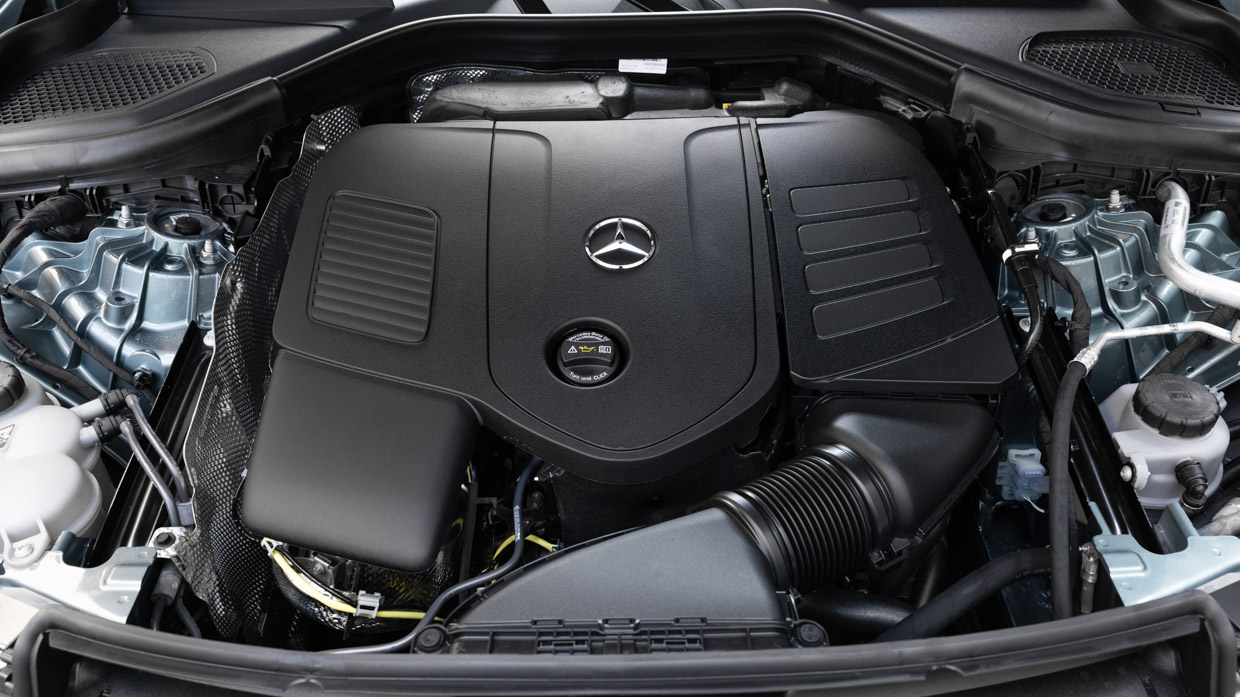
On the flipside, the nine-speed automatic transmission is noticeably improved. Losing most, if not all, of the jerkiness and indecision that plagues the 200 and 300 grades. Switch to electric-only drive and the experience improves even further.
With 107km of WLTP-tested range, a majority of buyers will be able to get by just fine in ‘Electric’ mode. The single electric motor sits between the 150kW/320Nm 2.0-litre petrol engine and transmission.
When navigating stop-start traffic, the 95kW/440Nm electric motor feels adequate for the task, and while it will allow the petrol engine to kick in within this mode it doesn’t feel the need to unless your foot is planted to the floor.
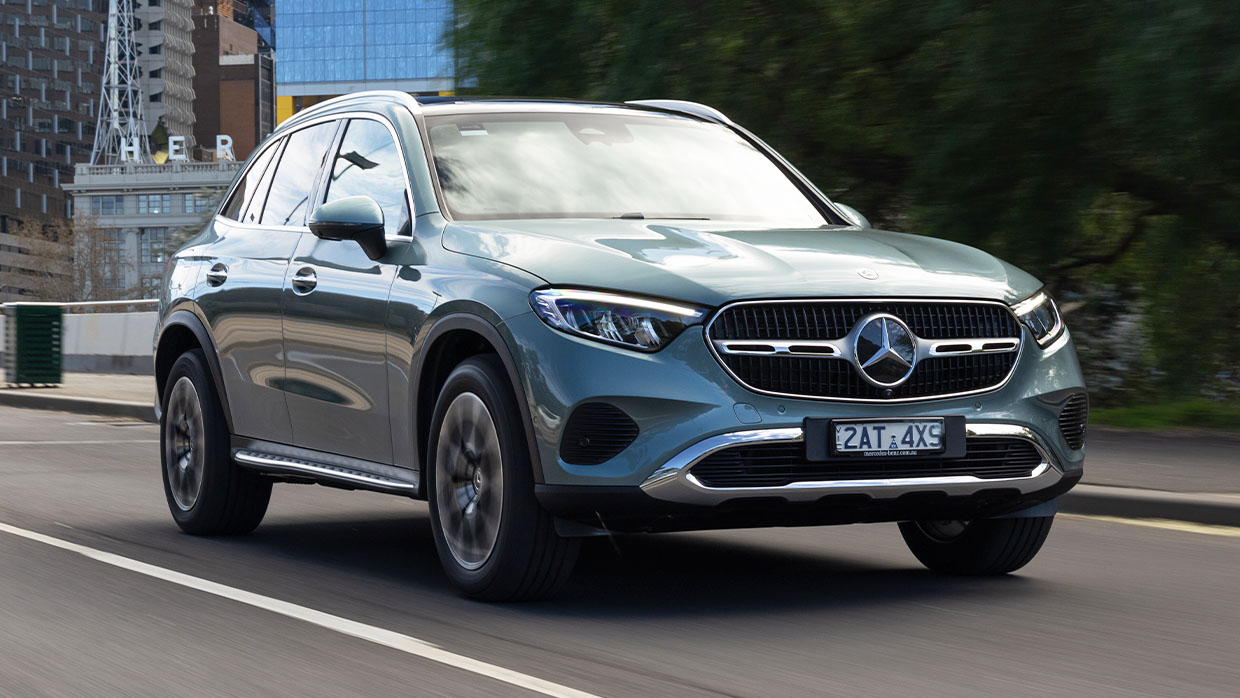
There’s also a Battery Hold function to preserve electricity for areas where it will be of greater use — such as city areas — but there is no specific charge mode, you’ll need to do that at home with a cable.
We didn’t get a chance to sample the ‘Off-Road’ mode but it’s a nice inclusion for this tarmac-focused SUV, with nifty functions such as Hill Start Assist and Downhill Speed Regulation to give drivers more peace of mind in sticky situations, but a G-Wagen this is not.
The GLC 350e’s interior space might not be as visually impressive as the 40-inch pillar-to-pillar screen dominance of the incoming GLC EV’s but in isolation, it still looks quite modern.
An 11.9-inch portrait touchscreen serves as the multimedia interface, working in conjunction with a 12.3-inch digital gauge cluster and head-up display sitting in front of the driver.
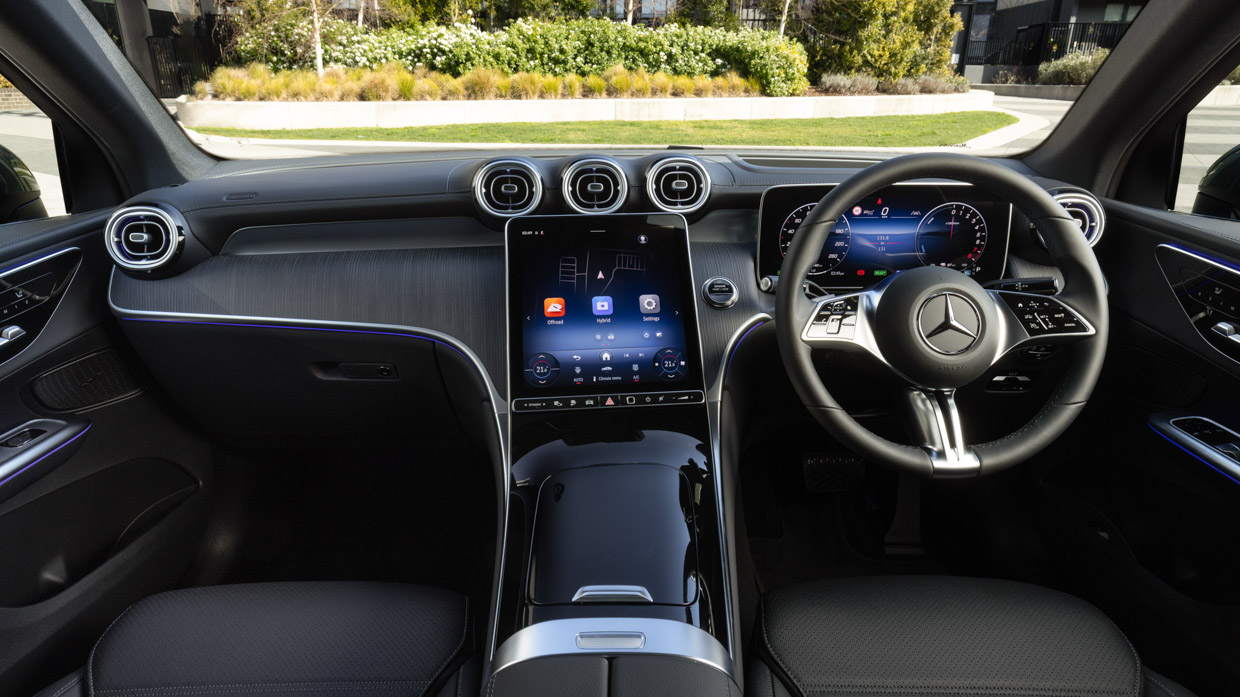
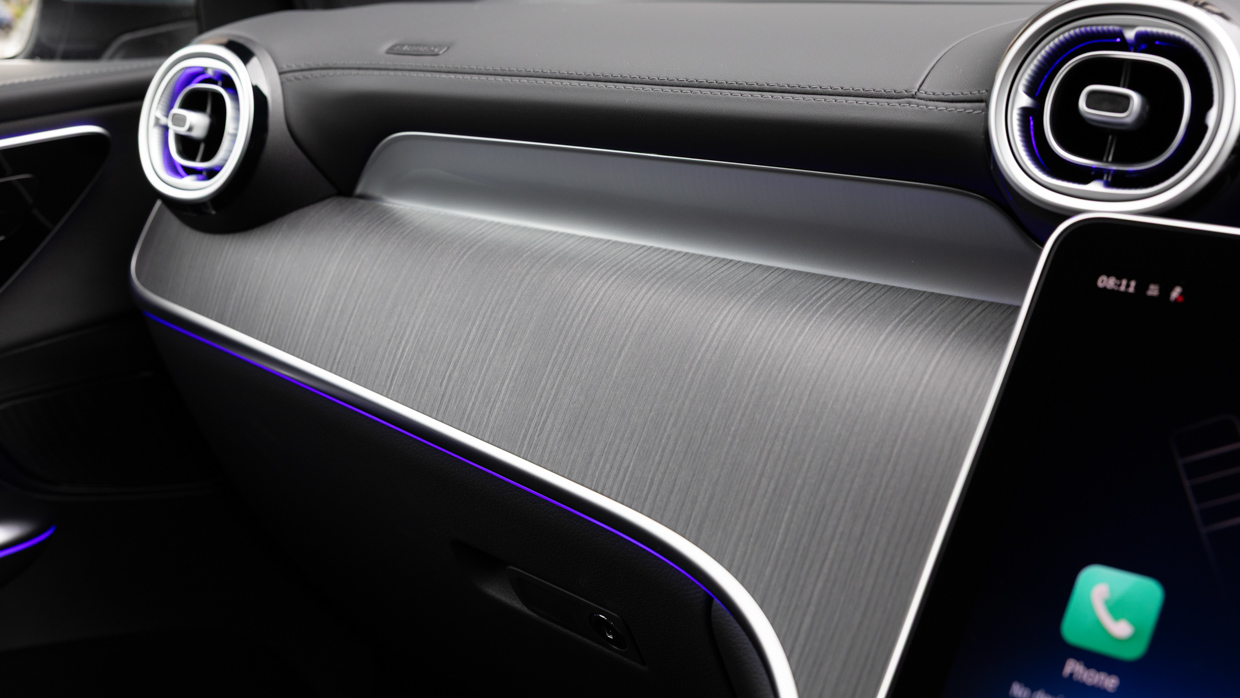
Mercedes’ operating system has become more user-friendly over the last few years but the learning curve remains steep and it’s not helped by the fussy — and tiny — touch capacitive controls on the twin-spoke steering wheel that most of your navigating will be done through.
A decrease in the amount of piano black material inside the cabin has raised the sense of interior quality inside the GLC, with particular compliments going to the Anthracite timber trim on the dashboard; conveying a genuine sense of expense.
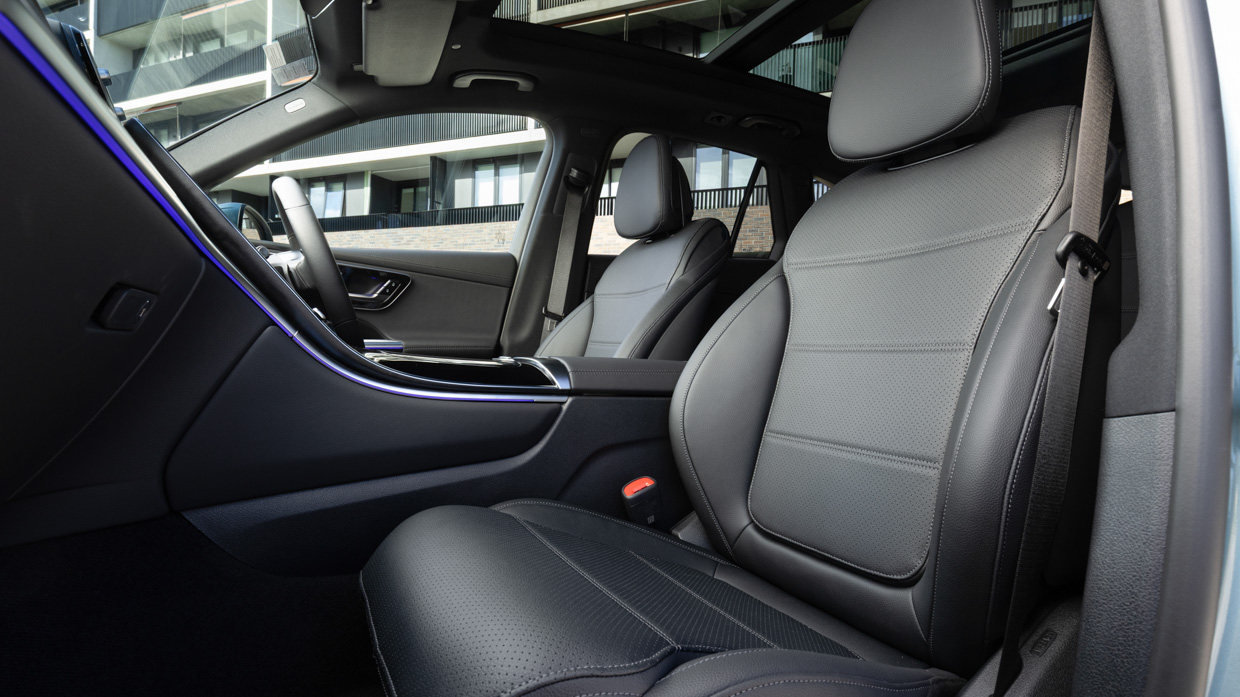
Highly adjustable and heated, the front seats clad in Artrico (synthetic leather) feel nice to touch and are comfortable on short trips but after a long drive we did long for more mid-back support, and seat cooling would be a nice addition as we head into the summer months.
The back seats remain a weak point for the GLC. While it offers more legroom than a Q5 neither are spacious enough for a midsize SUV and our previous experience fitting child seats into the GLC found there was significant compromise to those in the front row.
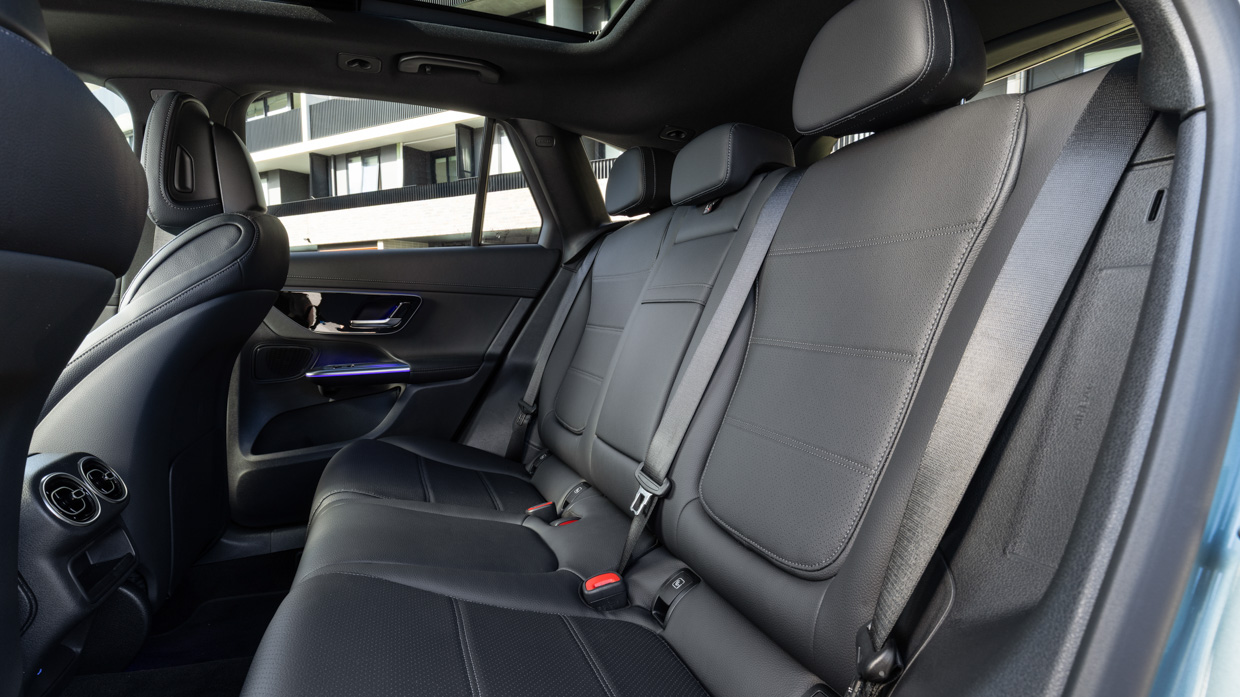
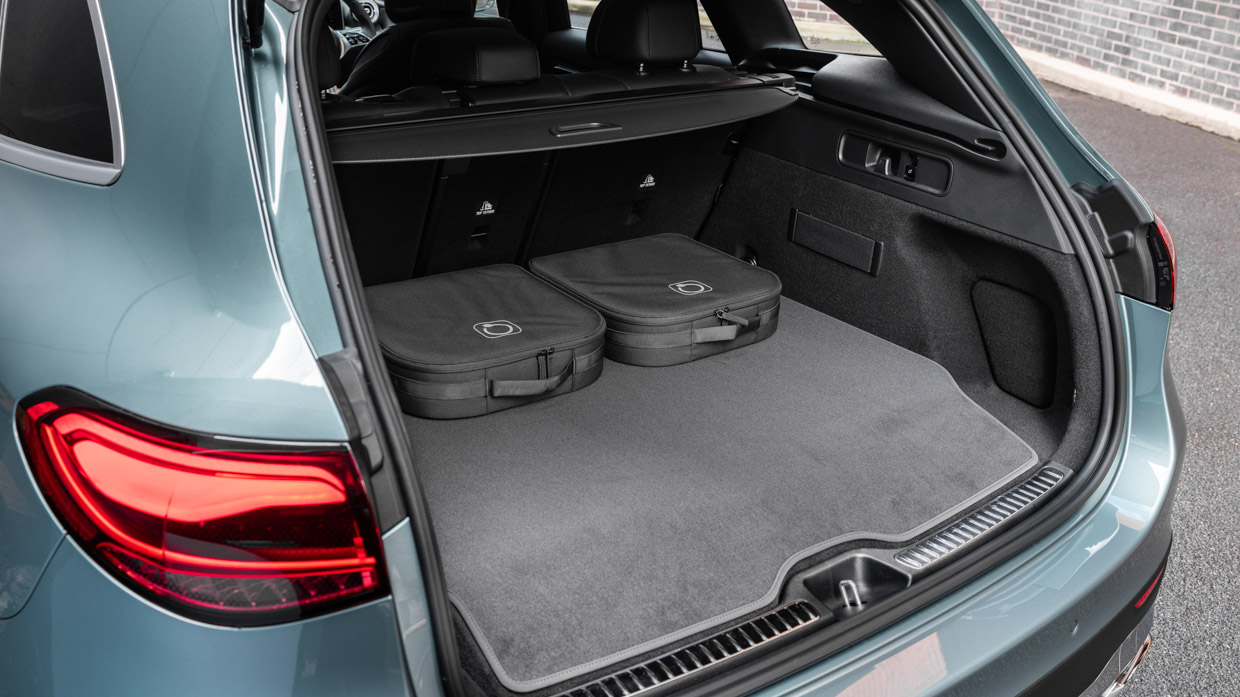
By adding a 25kWh battery pack over the rear axle, there has been some intrusion to the boot of the GLC so the floor is no longer entirely flat and there is no underfloor storage. In terms of overall size, however, it measures 590L vs 620L in the GLC 300.
The plug-in hybrid variant of the GLC is covered by the five-star ANCAP rating awarded to the model back in 2023. With the following sub-ratings awarded:
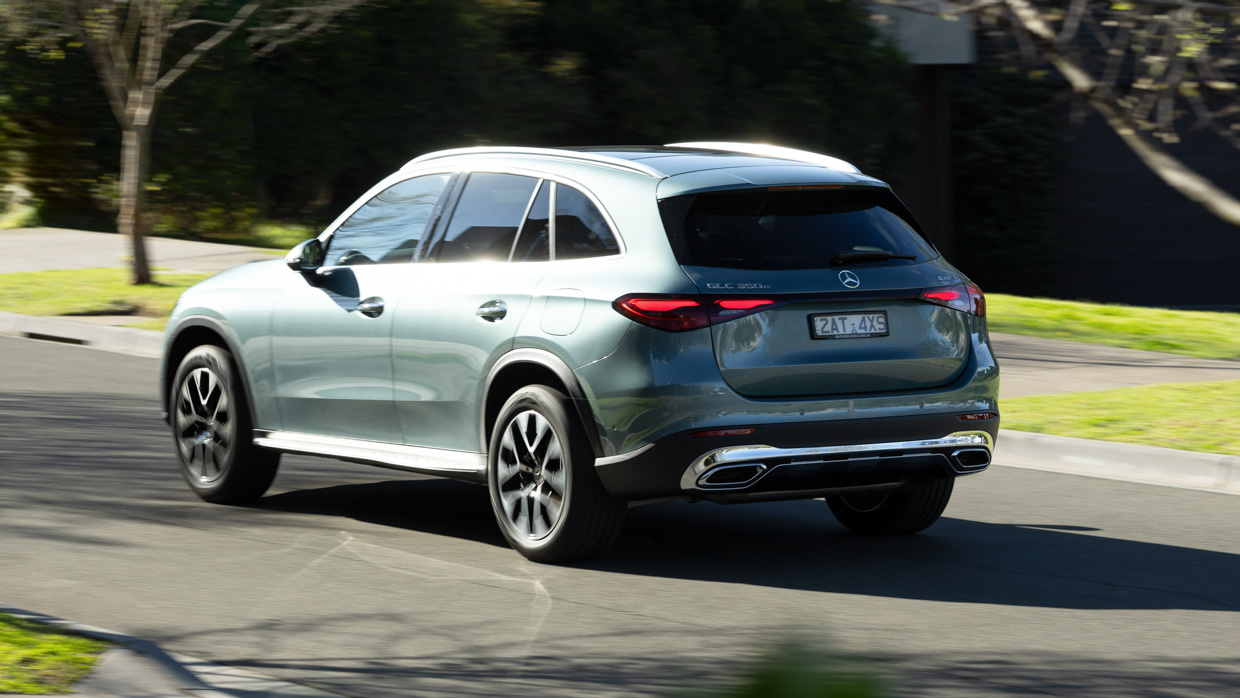
The top two scores apply to passive safety and are an impressive result, while on the move, we found the driver assistance features were generally well calibrated, with no excess beeping and bonging to ruin the experience.
A five-year service plan for a GLC 350e will set you back $7350, which could be good value if you travel long distances and plan on making use of the lengthy 12 month/25,000km service intervals.
However, key rivals including the BMW X3 (about $2500) Audi Q5 ($3500, depending on powertrain) and Volvo XC60 ($3870) cost much less to maintain over five years.
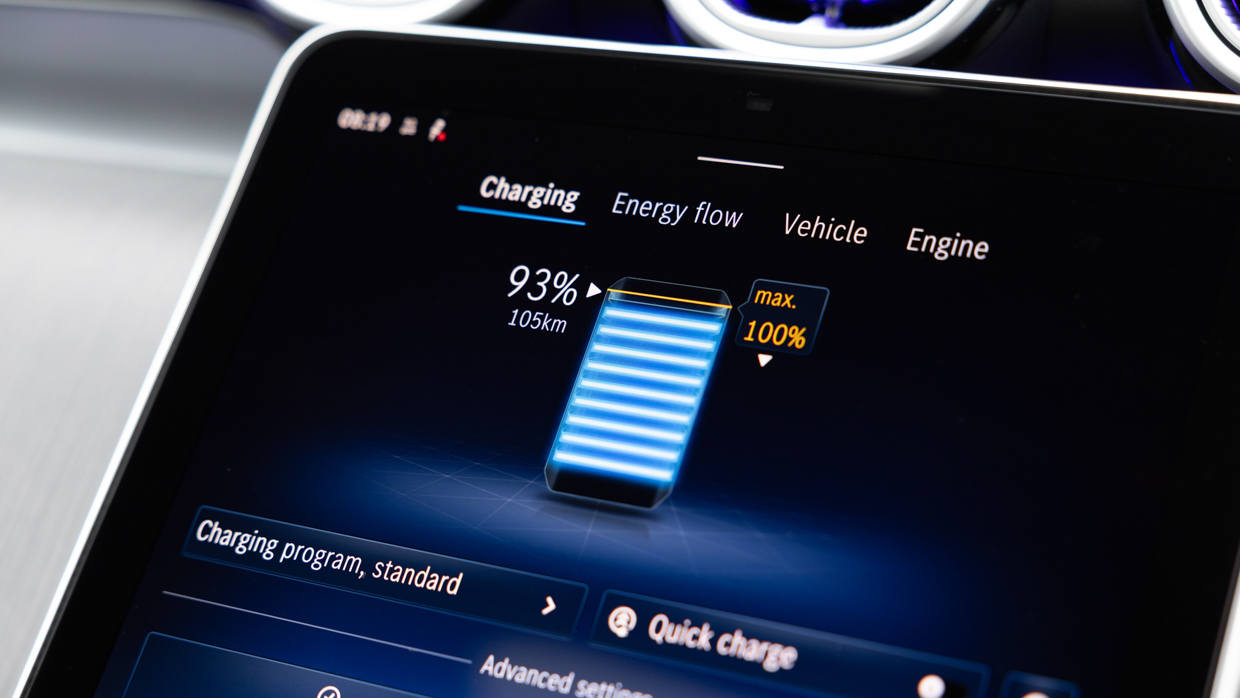
Mercedes-Benz’s warranty covers the GLC for five years with unlimited kilometres over that period.
The official fuel consumption is quoted at 1.2L/100km but it’s perhaps more helpful to know Mercedes’ efficiency claim of 7.8L/100km when the battery is flat. We saw 7.3L/100km when driving on a depleted battery on highways and demanding country roads.
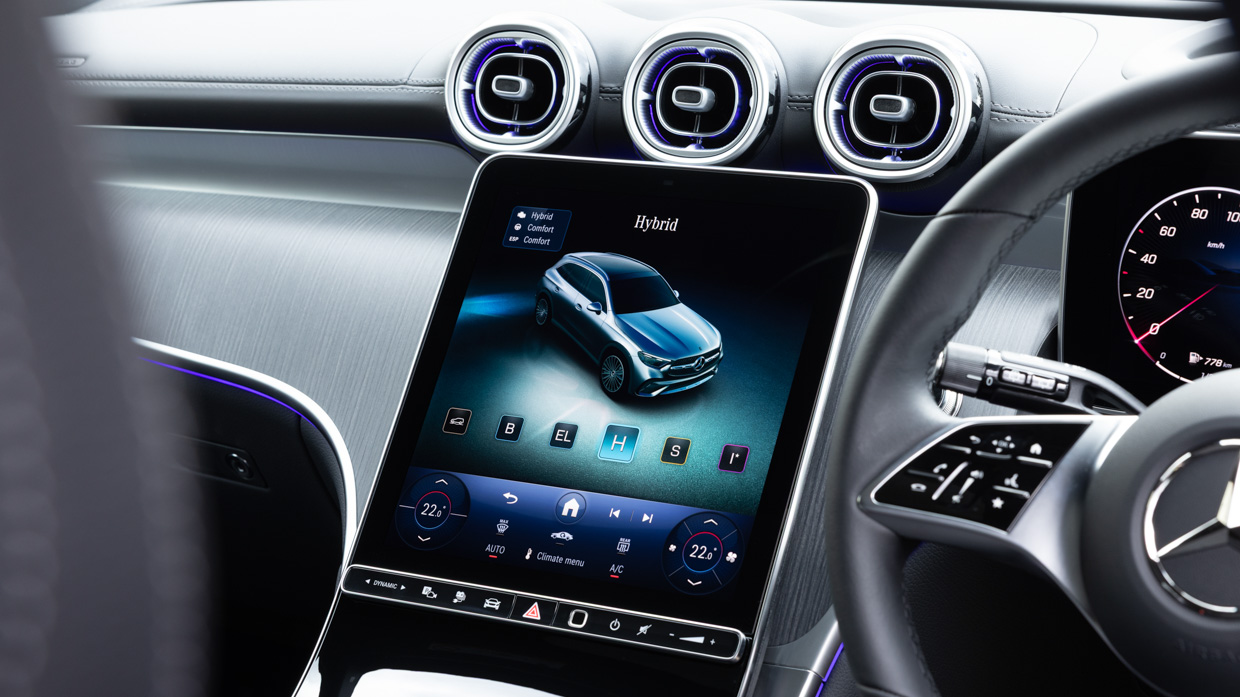
As stated earlier, the 25.3kWh usable battery offers up to 107kW of electric-only range, meaning a consumption of roughly 23.6kWh/100km. When testing in mixed conditions, we saw 31.7kWh/100km, indicating a range of just shy of 80km.
When driving in Sport and Hybrid mode across country roads, we saw an average of 5.7L/100km and 2.6kWh/100km depleted from the fuel tank and battery packs, respectively, which is quite impressive.
The GLC comes standard with an AC charging speeds of up to 11kW; an ability most likely to be used at home, with a 0-100 percent charge time of around two hours, says Mercedes.
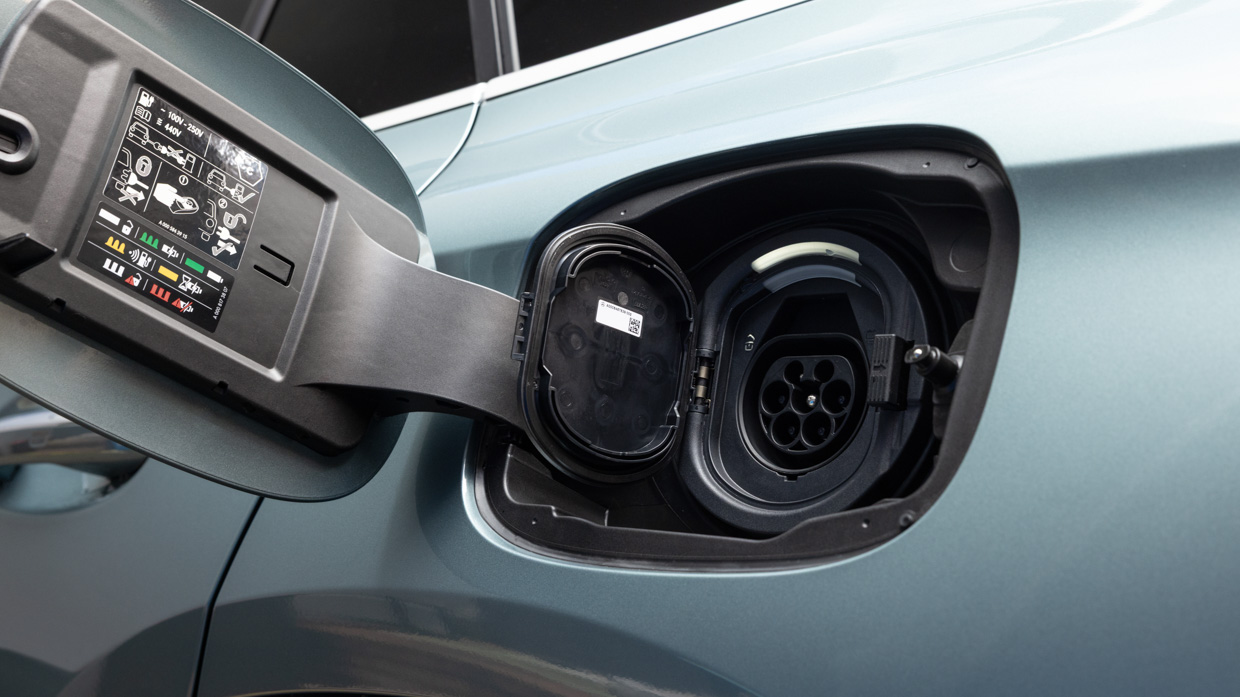
Faster DC charging speeds up to 60kW are available to top up the battery from 10-80 percent in roughly 20 minutes when you’re out on the road, but this ability is locked behind a $1500 upcharge.
Admittedly, this also grants access to Mercedes’ Me.Charge network, but it’s unfortunate that the two are packaged together.
The GLC 350e’s biggest sin is that it arrived too late to show what this model can do before many buyers look beyond the current generation to the all-electric version, which is due to arrive at some point in 2026, likely in the latter half of the year.
By offering a smoother driving experience and a better value proposition than the regular 200 and 300 grades, the 350e becomes a new flavour of GLC that isn’t just designed for fence-sitters in the petrol-to-electric transmission, but also a better experience all-round.
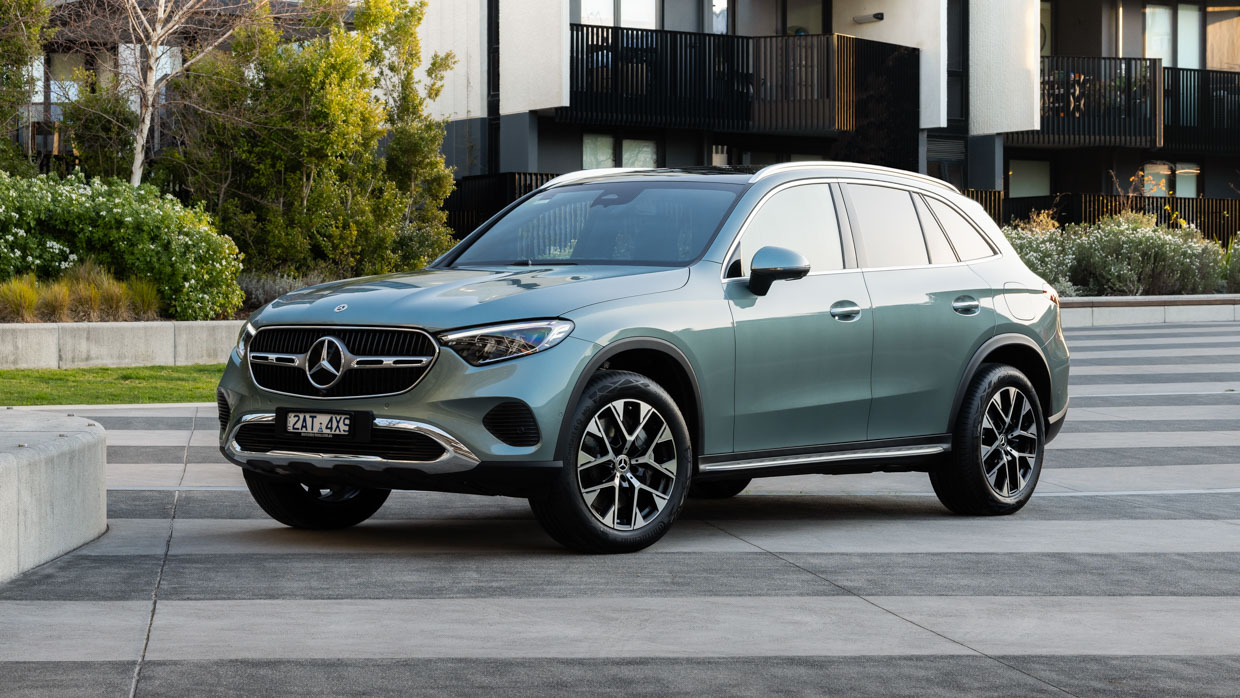
The experience would be better if Mercedes fixed its persistent build quality issues and improved the usability of its infotainment system that will leave some buyers seeking options from Audi and BMW.
While the GLC EV’s astonishing 700km range figure and more modern design will be enough to woo patient Mercedes-Benz fans, those seeing a GLC to drive in 2025 would do well to consider dipping their toe just a bit further into the electric world with the good-value 350e.
Key specs (as tested)
About Chasing cars
Chasing Cars reviews are 100% independent.
Because we are powered by Budget Direct Insurance, we don’t receive advertising or sales revenue from car manufacturers.
We’re truly independent – giving you Australia’s best car reviews.
The estimate provided does not take into account your personal circumstances but is intended to give a general indication of the cost of insurance, in order to obtain a complete quote, please visit www.budgetdirect.com.au. Estimate includes 15%^ online discount.
^Conditions Apply
Budget Direct Insurance arranged by Auto & General Services Pty Ltd ACN 003 617 909(AGS) AFSL 241 411, for and on behalf of the insurer, Auto & General Insurance Company Limited(ABN 42 111 586 353, AFSL 285 571).Because we don’t know your financial needs, we can’t advise you if this insurance will suit you. You should consider your needs and the Product Disclosure Statement before making a decision to buy insurance. Terms and conditions apply.
Indicative quote based on assumptions including postcode , 40 year old male with no offences, licence suspensions or claims in the last 5 years, a NCD Rating 1 and no younger drivers listed. White car, driven up to 10,000kms a year, unfinanced, with no modifications, factory options and/or non-standard accessories, private use only and garaged at night.
^Online Discounts Terms & Conditions
1. Discounts apply to the premium paid for a new Budget Direct Gold Comprehensive Car Insurance, Third Party Property Only or Third Party Property, Fire & Theft Insurance policy initiated online on or after 29 March 2017. Discounts do not apply to optional Roadside Assistance.
2. Discounts do not apply to any renewal offer of insurance.
3. Discounts only apply to the insurance portion of the premium. Discounts are applied before government charges, taxes, levies and fees, including instalment processing fees (as applicable). The full extent of discounts may therefore be impacted.
4. We reserve the right to change the offer without notice.